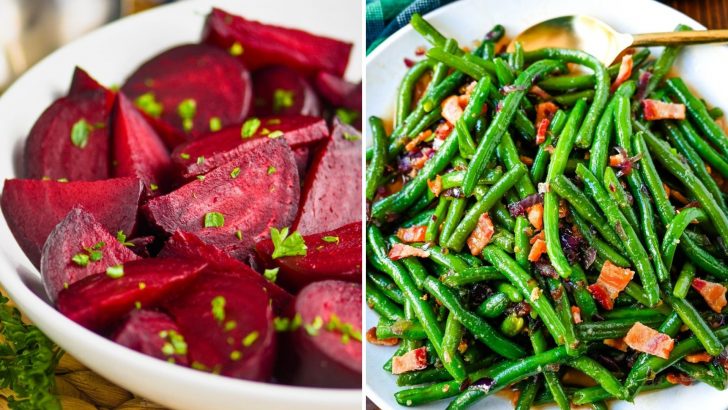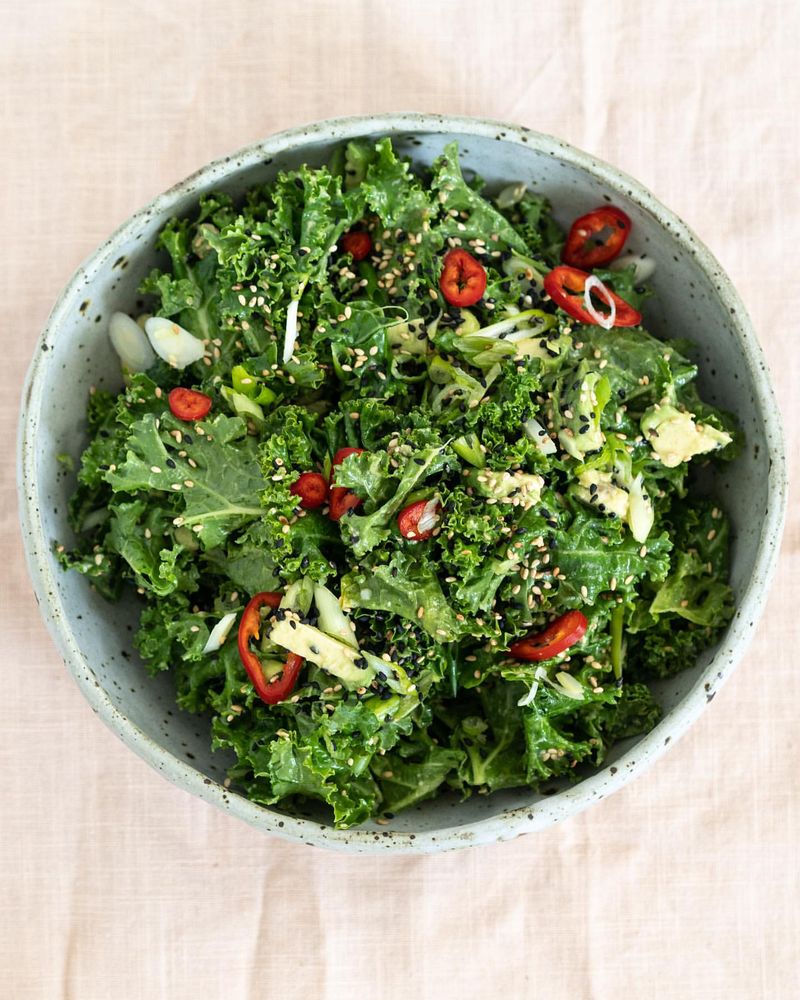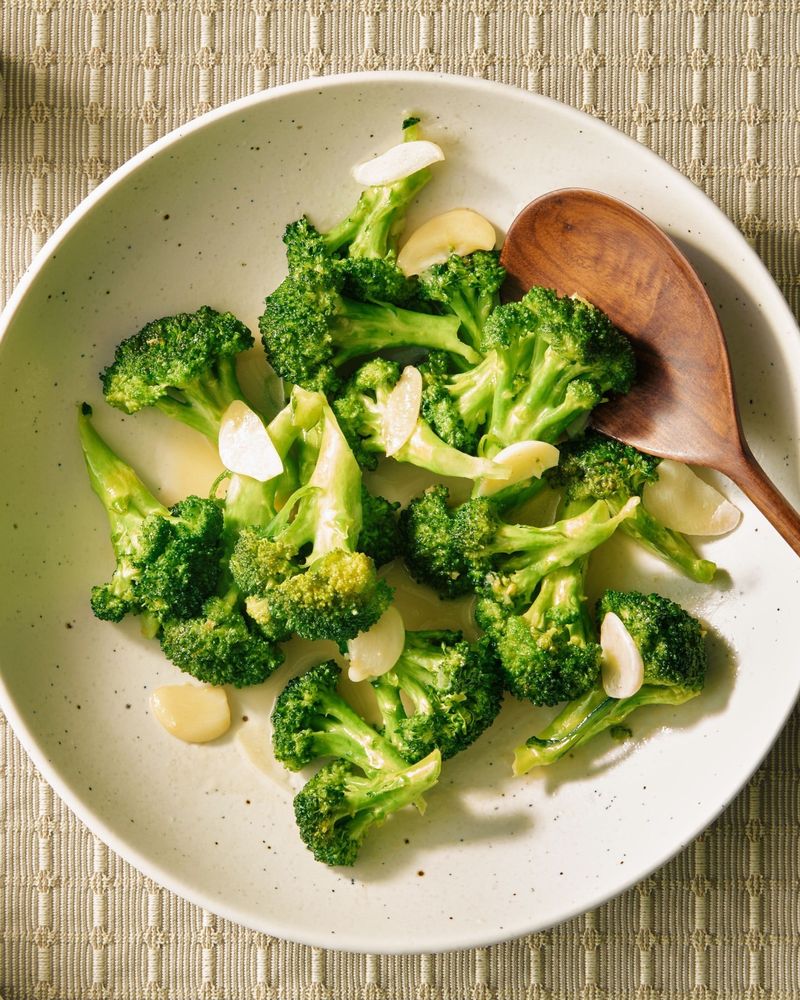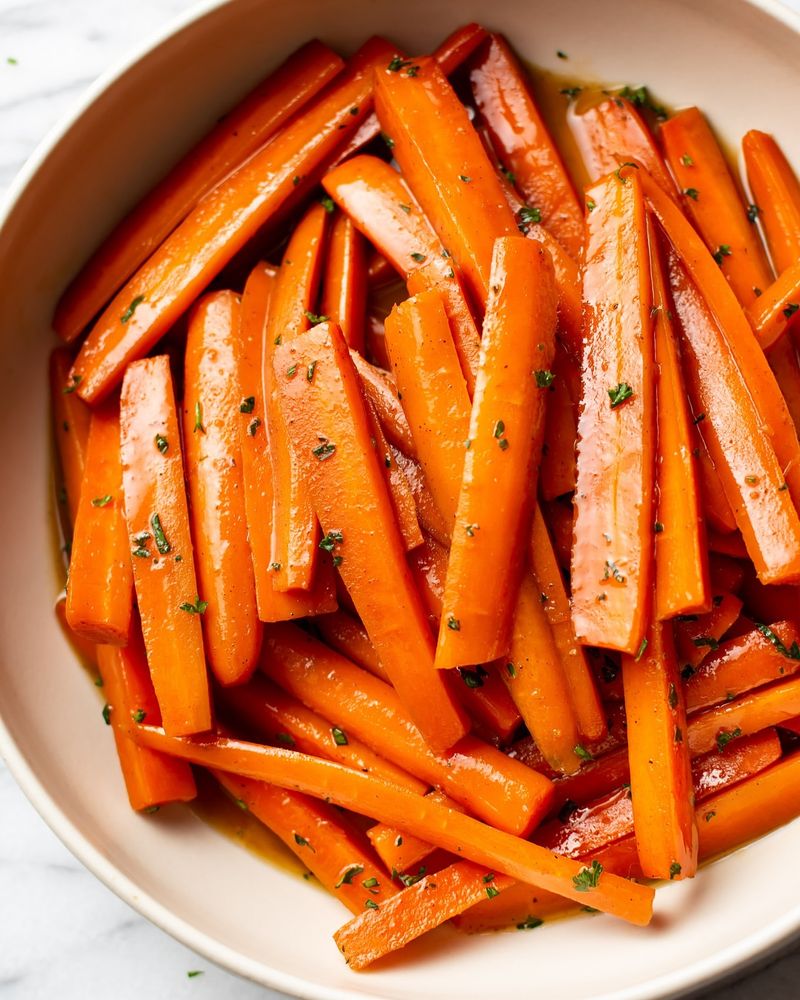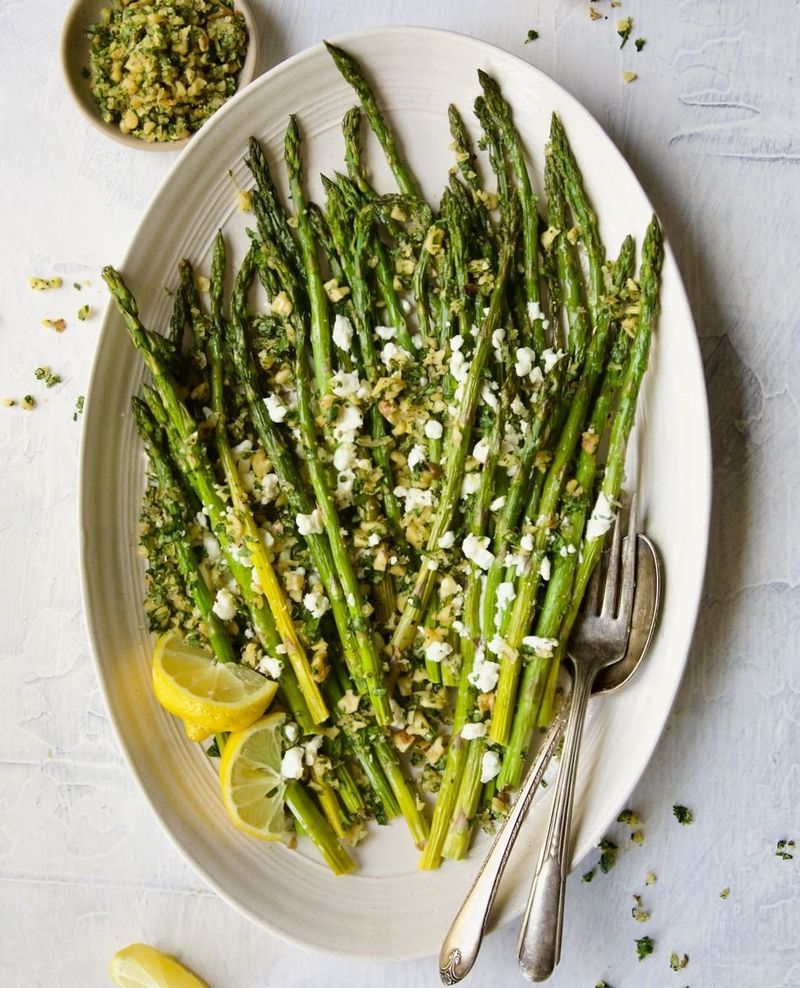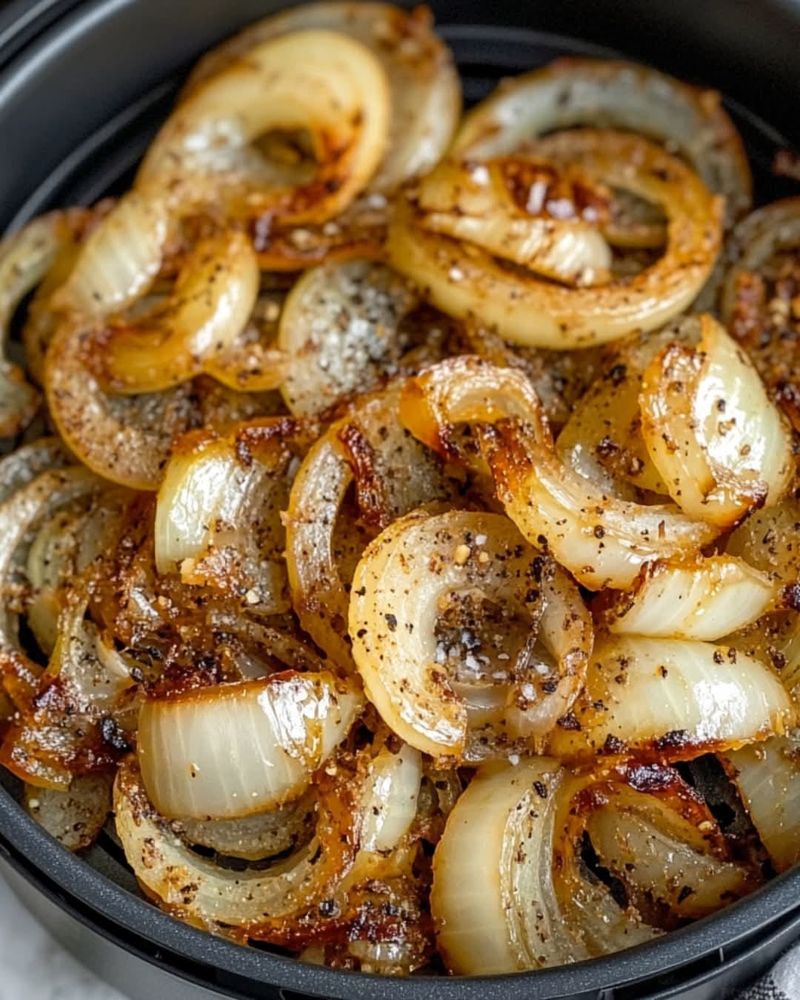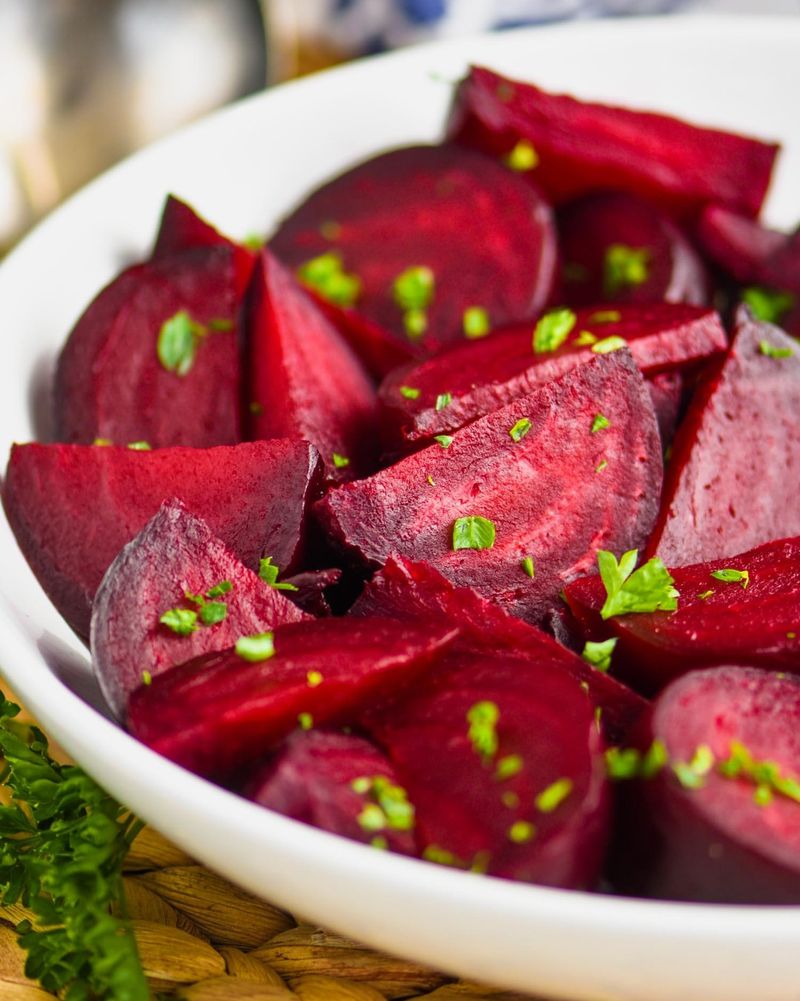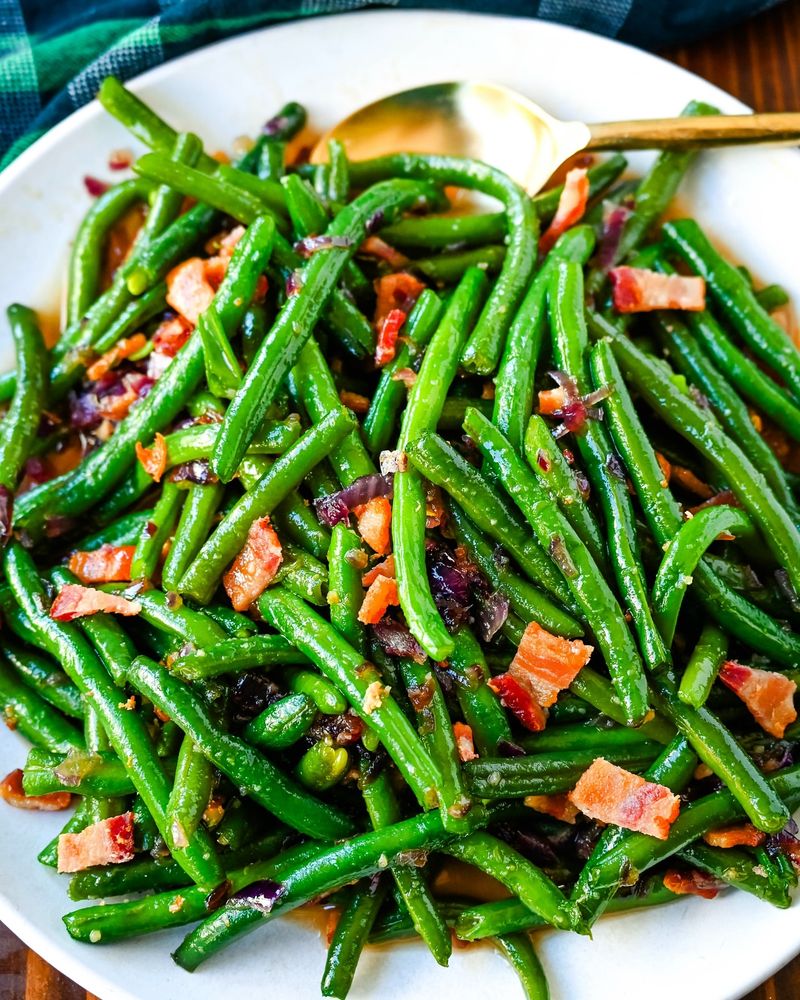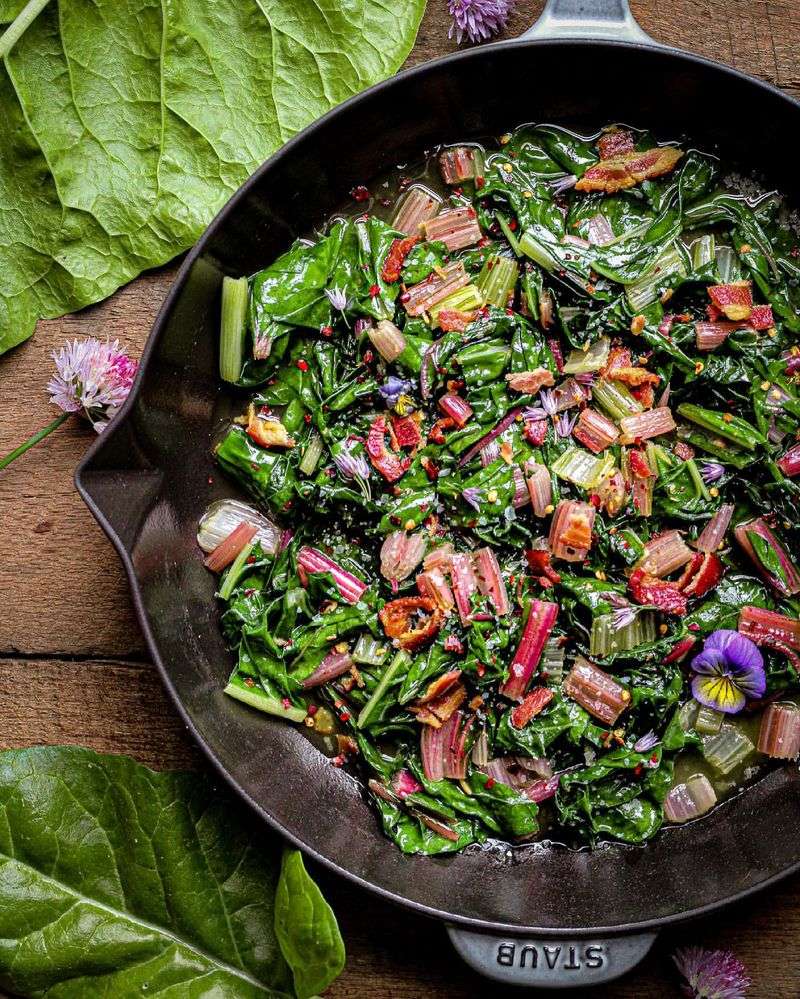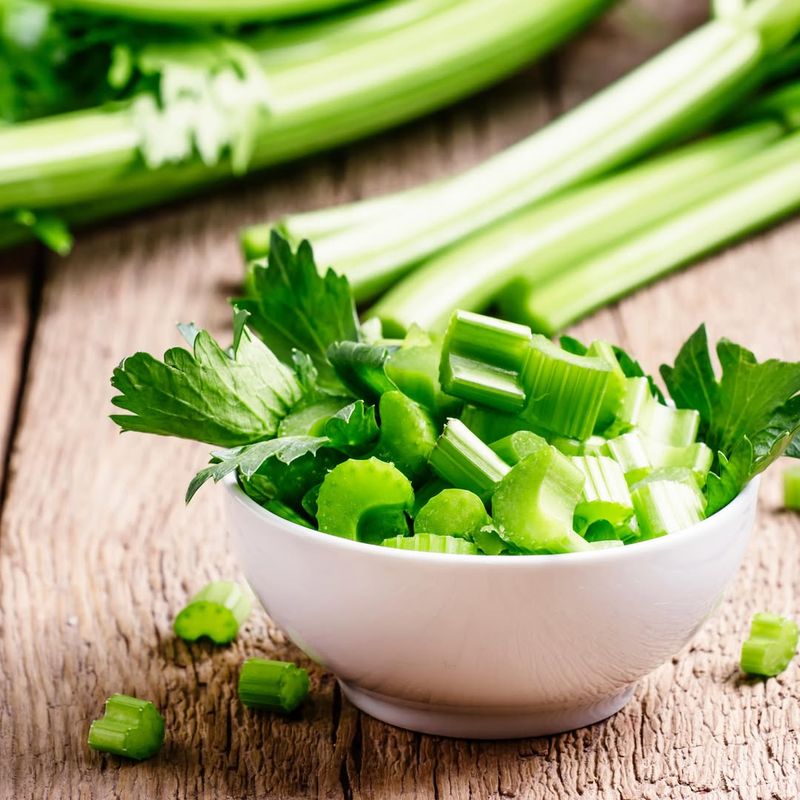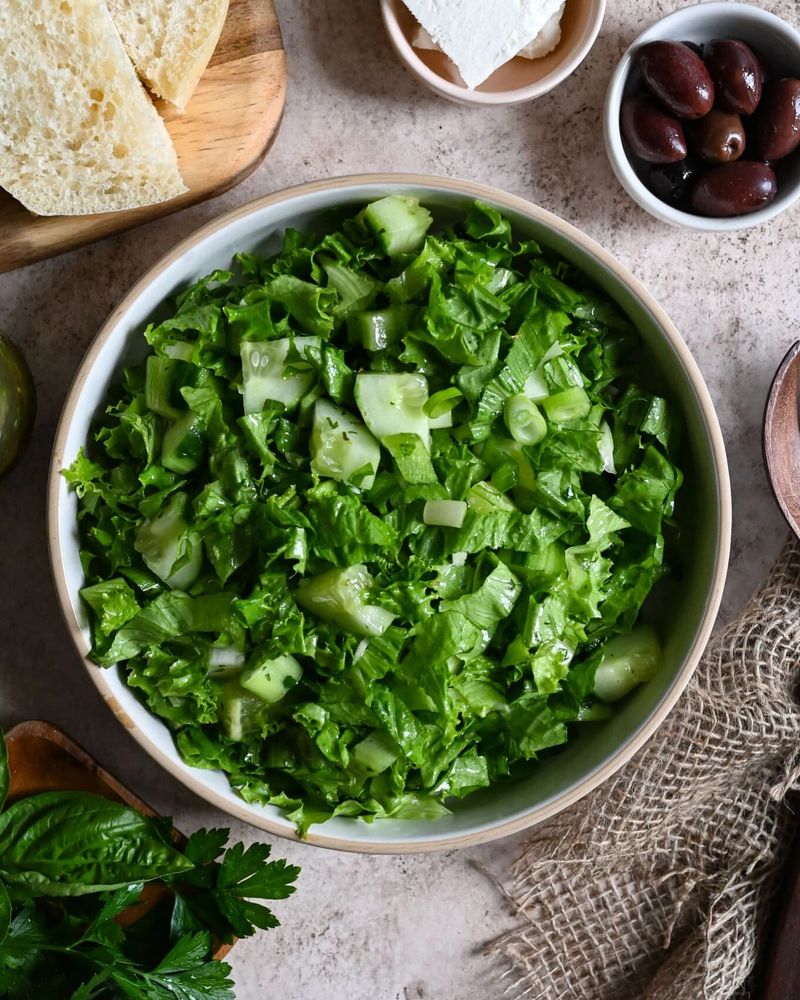When it comes to fueling our bodies with the best nutrients, vegetables stand out as essential components of a healthy diet. As we explore 21 of the most nutrient-dense vegetables, you’ll find that each one offers unique benefits that can enhance your daily meals.
Nutritionists emphasize the importance of incorporating a variety of these vegetables into your diet to ensure a broad spectrum of nutrients. Let’s embark on this flavorful journey and discover how these vegetables can invigorate your health.
1. Spinach
If ever there was a vegetable deserving of the title “superfood,” it’s spinach. Packed with iron, calcium, and vitamins A, C, and K, spinach is a powerhouse of beneficial nutrients.
How often do you add a handful to your salad or smoothie? Maybe it’s time to make it a staple. You can easily incorporate it into various dishes without altering the flavor significantly.
Moreover, its versatility is unmatched, making it easy to consume regularly. Hence, including spinach in your diet is a no-brainer.
2. Kale
However, kale is often heralded by nutritionists as a leafy green that packs a punch. This verdant vegetable is rich in vitamins A, C, K, and B6, alongside minerals like calcium and potassium.
How do you make kale palatable if you’re not a fan? Try baking it into chips or blending it into a smoothie. Where kale excels is in its ability to provide antioxidants that combat inflammation. Therefore, it’s essential to explore creative ways to enjoy it daily.
3. Broccoli
Broccoli, though sometimes overlooked, offers a wealth of nutrients, including fiber, vitamin C, and potassium. If steamed or roasted, it retains its delightful crunch while enhancing its mild flavor.
Why not transform it into a creamy soup or stir-fry? Broccoli is known for its cancer-fighting properties, thanks to its high levels of sulforaphane.
Thus, it serves as a vital addition to a balanced diet. By incorporating it into meals, you can savor both its taste and benefits.
4. Brussels Sprouts
Brussels sprouts often evoke strong opinions, yet they are undeniably nutritious. These mini cabbages offer substantial amounts of vitamin C, vitamin K, and fiber. If properly roasted, they transform into a delectable side dish.
Why not try them with a drizzle of balsamic glaze? Brussels sprouts also contain antioxidants that support overall health. Owing to their robust flavor, they pair well with bold spices. Hence, they should find their way into your regular meal rotation.
5. Carrots
Carrots, with their natural sweetness, are beloved by many. These root vegetables are a fantastic source of beta-carotene, which converts to vitamin A in the body. If you enjoy them raw, you’re already benefiting from their crunchy goodness.
Consider adding them to soups or stews for enhanced flavor. Carrots are also rich in antioxidants that help maintain vision and skin health. Due to their versatility, they are easy to incorporate into any meal plan, offering both taste and nutrition.
6. Sweet Potatoes
Sweet potatoes provide a delightful balance of taste and nutrients. They are rich in fiber, vitamins A and C, and manganese. Have you ever tried them baked? They offer a comforting sweetness that complements any dish.
How about adding them to a hearty stew or simply mashing them as a side? Sweet potatoes are known for supporting immune function and vision. Therefore, their inclusion in your diet can be both delicious and beneficial. Moreover, they make for a fulfilling addition to meals.
7. Peppers
Peppers, vibrant and versatile, bring more than just color to your plate. Though they vary in heat, all peppers are rich in vitamins A and C, and antioxidants. If you prefer a mild taste, bell peppers are your best bet.
Consider stuffing them with grains or slicing them into salads for a burst of flavor. Peppers also enhance metabolic rate and support immune function.
Hence, they are a fantastic vegetable to boost your daily nutrient intake. Enjoy them in various dishes for maximum benefits.
8. Tomatoes
Tomatoes, technically a fruit, are often categorized with vegetables due to their savory profile. They are packed with lycopene, vitamin C, and potassium. If incorporated into sauces or salads, they add a delightful fresh taste.
Consider enjoying them roasted to intensify their natural sweetness. Tomatoes support heart health and may reduce cancer risk due to their antioxidant content. Thus, they are an essential component of a nutrient-rich diet. Try growing them at home for the freshest flavor.
9. Cabbage
Cabbage, though simple in appearance, holds impressive nutritional value. It’s packed with vitamins K, C, and B6, along with fiber and antioxidants. If shredded into slaws or fermented into sauerkraut, it offers a unique flavor profile.
Why not incorporate it into your next stir-fry? Cabbage supports digestion and boosts immune health thanks to its nutrient density. Its versatility means it fits seamlessly into many recipes, providing both texture and nutrition without overpowering other ingredients.
10. Cauliflower
Cauliflower, in its understated white form, is a chameleon in the kitchen. Though mild in flavor, it is rich in fiber, vitamins C and K, and folate.
How about using it as a base for a creamy soup or mashing it as a low-carb substitute? It’s also delicious when roasted to bring out its nutty undertones. Cauliflower has antioxidants that fight inflammation.
Thus, its adaptability makes it easy to include in daily meals, allowing for innovative culinary creations.
11. Asparagus
Asparagus, often seen as a gourmet vegetable, is packed with nutrients. It’s rich in vitamins A, C, E, and K, as well as fiber and folate. If you grill or steam it, asparagus retains its crisp texture and subtle flavor.
Consider drizzling it with lemon juice to enhance its natural taste. Asparagus supports digestion and is known for its diuretic properties. Hence, it’s a great addition to your diet, offering both nutritional benefits and a touch of elegance to your meals.
12. Garlic
Garlic, though small, offers significant health benefits. It’s rich in vitamin C, B6, and manganese, and is known for its allicin content. If incorporated into meals, garlic provides a pungent flavor that enhances dishes.
How often do you add it to your cooking? Consider roasting it for a sweeter, milder taste. Garlic is renowned for its immune-boosting properties and cardiovascular benefits. Therefore, it should be a staple in your kitchen, contributing both flavor and health advantages.
13. Onions
Onions, though they bring tears, are beloved for their flavor and health benefits. Rich in vitamin C, B vitamins, and antioxidants, onions enhance any dish they grace. If sautéed, they offer a sweet, caramelized taste.
Consider adding them to soups, stews, or salads. Onions are known for their anti-inflammatory properties and support heart health. Thus, they are a versatile ingredient that deserves a spot in your daily cooking. Their ability to blend seamlessly makes them indispensable in many cuisines.
14. Beets
Beets, with their striking color, are more than just a visual treat. Packed with fiber, folate, and manganese, they offer a unique earthy flavor. If roasted or boiled, beets can elevate salads or serve as a side dish.
How about incorporating them into a smoothie for a nutrient boost? Beets are renowned for supporting cardiovascular health and improving exercise performance. Therefore, their inclusion in your diet can be both nourishing and aesthetically pleasing, adding color to your meals.
15. Zucchini
Zucchini, though mild in taste, is a summer staple that packs nutrients. It’s rich in vitamin C, manganese, and antioxidants. If you enjoy a light, tender texture, try grilling or spiralizing it into noodles.
Zucchini supports digestion due to its high water content. Hence, it’s a refreshing addition to your meals. Consider baking it into bread or muffins.
Zucchini’s versatility allows for creativity in the kitchen, making it an easy and nutritious choice for daily consumption.
16. Eggplant
Eggplant, with its unique texture, is a beloved vegetable in many cuisines. Though technically a fruit, it’s rich in fiber, vitamins B1, B6, and potassium. If roasted or grilled, eggplant offers a hearty flavor.
Why not try it in a ratatouille or as a meat substitute in dishes? Eggplant contains antioxidants that protect cells. Therefore, it’s a valuable addition to a balanced diet. Its ability to absorb flavors makes it a versatile ingredient, ideal for culinary experimentation.
17. Radishes
Radishes, though small, pack a peppery punch and are full of nutrients. They are rich in vitamin C, fiber, and antioxidants. If you slice them into salads, they add a crisp texture and spicy flavor. Consider roasting them to mellow their sharpness.
Radishes support digestion and have detoxifying properties. Hence, they are a delightful and refreshing choice for your diet. Their vibrant color and unique taste can enliven any dish, providing both nutritional benefits and visual appeal.
18. Green Beans
Green beans, often underestimated, offer numerous health benefits. They are rich in fiber, vitamins C, A, and K, and folate. If steamed or sautéed, they retain their vibrant color and crispness. Why not add them to stir-fries or enjoy as a side dish?
Green beans support heart health and are known for their antioxidant properties. Thus, they deserve a place in your meal rotation. Their versatility makes them a convenient and nutritious choice for everyday cooking.
19. Swiss Chard
Swiss chard, often overshadowed by kale and spinach, is a nutritional powerhouse. It’s rich in vitamins A, C, and K, as well as magnesium and potassium. If you sauté it with garlic, it offers a delightful, earthy flavor.
Consider adding it to soups or casseroles for a nutrient boost. Swiss chard supports bone health and reduces inflammation. Hence, its inclusion in your diet is both beneficial and flavorful. Its vibrant stems and leaves can also add visual appeal to dishes.
20. Celery
Celery, though commonly used as a snack, is packed with nutrients. It’s rich in vitamin K, folate, and potassium. If you enjoy it raw, it provides a satisfying crunch and refreshing taste. Consider adding it to soups or stews for enhanced flavor.
Celery supports digestion and has anti-inflammatory properties. Therefore, it’s a versatile vegetable that can easily be included in various meals. Its hydrating qualities make it an excellent addition to your diet, especially in warmer months.
21. Lettuce
Lettuce, often seen as a salad staple, offers more than just texture to dishes. It’s rich in vitamins A and K, and is low in calories. If you enjoy it as a base for salads, you’re already benefiting from its crunchy freshness.
Consider using it as a wrap for sandwiches or tacos. Lettuce supports hydration and provides antioxidants for overall health. Hence, its versatility makes it an ideal choice for numerous recipes. Enjoy it fresh to maximize its nutritional benefits.

